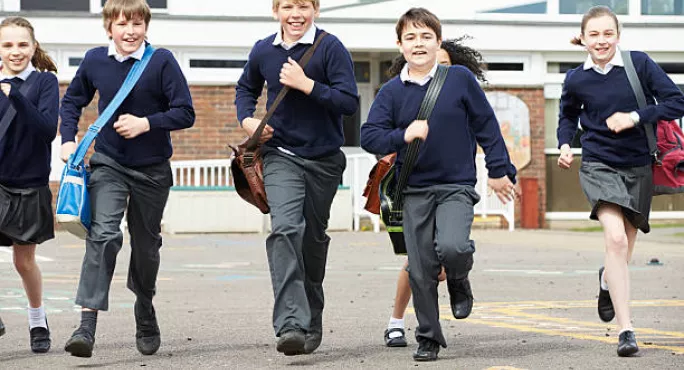New research has highlighted the possible value of in-school learning over remote learning by showing how students in Year 7 - who returned to school half-a-term earlier than other year groups last year - have suffered less learning loss in the pandemic.
Then in Year 6, current Year 7s returned to school on 1 June last year, along with Reception and Years 1 and 2, while other year groups continued to learn remotely.
And new research commissioned by the Department for Education shows how they have suffered an estimated 0.9 months of reading loss, which is around half that suffered by almost all other year groups covered by the research - Years 3 to 9.*
Cost of Covid: Teachers’ grim figures on learning loss
Exclusive: Tests reveal ‘dramatic’ GCSE learning loss
Boris Johnson: Schools to get further £300m for catch-up tutoring
Learning loss for other year groups covered by the study ranged from two months (Years 6 and 9) to 1.6 months (Year 8).

The DfE report states: “One possible explanation is that this year group was out of school for less time than others. Schools were expected to be open to Reception, Year 1, Year 2 and Year 6 from 1 June 2020 - while others were still receiving remote education.”
Covid: Learning losses ‘could have increased’
The research, by the Education Policy Institute, looked at year groups 3 to 9, and is based on data by Renaissance Learning UK, which provided reading tests to more than a million pupils at the start of each autumn term for the past three years, as well as around 50,000 tests in maths.
It shows that learning loss in maths was greater than in reading and that, on average, pupils in primary schools experienced a learning loss of just over three months. However, the report says it hasn’t been possible to “derive robust estimates” for learning loss in maths in secondary schools.
EPI chief executive Natalie Perera said further disruption since the tests in the autumn term could give rise to further learning loss.
“These new findings show that considerable losses in pupil progress were already evident by the first half of the autumn term, with pupils in primary schools, secondary schools and in different parts of the country all seeing their academic progress penalised by the pandemic,” she said.
“Since then, pupils have faced further disruption as a result of this period of school closures. While teachers, parents and pupils have been going to great lengths to adapt to remote learning, the real concern now is that these learning losses could increase.”
The research echoes findings from RA Assessments, as reported by Tes yesterday, that schools with high levels of disadvantage experienced higher levels of loss than other schools, and that there were regional differences in learning loss.
It states: “Once we adjust for historic differences in pupil progress, we find that in most regions (including London) primary-aged pupils have typically lost between 1.7 and 2 months. However, pupils in the North East and Yorkshire and the Humber have still lost slightly more - 2.4 months and 2.2 months respectively.”
*The report states that further research will shed more light on Year 7 learning loss, and that the results should be treated with caution as Year 7 is the smallest group for which results are being presented and the number of pupils included is “significantly lower” than last year’s data.






